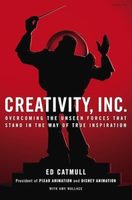Blog posts on respect for peoplePosts selected fromManagement Blog - Engineering Blog - Investing Blog and other blogs - Appropriate Technology and Focus on Improving Lives at MIT
The D-Lab is building a global network of innovators to design and disseminate technologies that meaningfully improve the lives of people living in poverty. The program’s mission is pursued through interdisciplinary courses, technology development, and community initiatives, all of which emphasize experiential learning, real-world projects, community-led development, and scalability. continue reading: Appropriate Technology and Focus on Improving Lives at MIT - Computer Code for NASA’s Apollo Guidance System
My aunt was one of those early software engineers. She wrote a chapter for a book, Programming the IBM 360, in the 1960s. My uncle was one of the first employees at NASA and rose to be one of the senior administrators there over his career.
It is great when society is able to capture the value individuals are capable of providing. We need to make sure we allow everyone opportunities to contribute. continue reading: Computer Code for NASA’s Apollo Guidance System - Toyota Special Report: Thinking Production System
This short article is peppered with many great quotes as section headers:
- In TPS, the T also stands for Thinking
- To cut lead-time, cut out all the bits that don't add value.
- The line must stop if there is a problem.
- Ask yourself Why? five times.
- Develop people who can come up with unique ideas.
continue reading: Toyota Special Report: Thinking Production System - What is a Lean Program, Deming Program?
Lean has evolved away, IMO, from just being able to say anything Toyota does is by definition lean. Lean and Deming are more about a philosophy of managing - continual improvement, respect for people, etc. than prescriptions. So you can't really have a checklist and say that if your org can check off all these things they are lean or Deming.
The fact that the management systems can't be reduced to a checklist is a necessary given the long lasting power they offer. continue reading: What is a Lean Program, Deming Program? - Quality Comes to City Hall
 Changing to a culture that has a Deming perspective on customer focus is not easy. When you succeed though the way people think is profoundly changed. The City of Madison police department even did customer surveys for those they arrested and used the results to improve the process in ways that make sense. Obviously there are restrictions on what you can do to please those being arrested but this is really always the case – you can’t give all your products and services away for free even if that would make customers happy. continue reading: Quality Comes to City Hall - Why do you hire dead wood? Or why do you hire live wood and kill it?
The common objection to seniority pay is, "It’s rewarding dead wood!” My response is, “Why do you hire dead wood? Or why do you hire live wood and kill it?”
Peter Scholtes, The Leader’s Handbook, page 331 continue reading: Why do you hire dead wood? Or why do you hire live wood and kill it? - Lowering Expectations Isn't Practicing Respect for People
A big problem we have (at least in the USA) is the opinion some people develop that respect has to do with not making anyone uncomfortable. That isn't respect, that is creating a dysfunctional mindset.
Fear driven culture that give mouth service to "respect" often create a climate in which managers find themselves fearful of being blamed for "disrespecting people" (which often means making someone uncomfortable). If they truly are being dis-respectful their boss needs to be dealing with that and helping them improve continue reading: Lowering Expectations Isn't Practicing Respect for People - Businesses Need to Capture Potential Information and Use the Creativity of Employees
- Lessons for Managers from Wisconsin and Duke Basketball
The lesson many people miss is that college teams are mostly about developing a team that wins. Developing individual players is a part of that, but it is subordinate to developing a team. I think college coaches understand this reality much more than most managers do. But a management system that develops a team that succeeds is also critical to the success of business. continue reading: Lessons for Managers from Wisconsin and Duke Basketball - Who Inspires Your Management Thinking and Action?
 - Peter Drucker Advocated a Ratio of 20 to 1 for CEO to Average Worker Pay
I agree with Drucker’s reasoning and the Drucker Institute’s continuing to take a stand against the bad practice of so many CEOs today. If someone wants a lot of money to lead your organization and they are qualified, fine. If they won’t run your organization for less than a king’s ransom find someone who is more interested in leading your organization than in treating it as their personal bank account. continue reading: Peter Drucker Advocated a Ratio of 20 to 1 for CEO to Average Worker Pay - Creativity Inc. – Using Deming’s Ideas at Pixar
 Ed Catmull (co-founded Pixar with Steve Jobs and John Lasseter): "As we struggled to get Pixar off the ground, Deming’s work was like a beacon that lit my way.
…
it wasn’t until the 1980s when a few companies in Silicon Valley, such as Hewlett Packard and Apple, began to incorporate them. But Deming’s work would make a huge impression on me and help frame my approach to managing Pixar going forward." continue reading: Creativity Inc. – Using Deming’s Ideas at Pixar - Quality Beginnings: Deming and Madison, Wisconsin
David Couper: "Deming’s teachings had a strong influence in Madison. Under Mayor Joseph Sensenbrenner (1983-1989), there was a near-total involvement by city employees in applying Deming’s work to city government. These were Madison’s golden years as government, business, and educational institutions worked together to make quality an organizational lifestyle in Madison. Deming helped us to see police work as a system capable of being improved.
We also learned the value of collaborating with and learning from others outside of law enforcement. We came to see that the systems for which we were responsible, were dependent on others around us (like when we realized the important systems-link between poverty, jobs, education, and crime). Most of all we saw the work we did as a system – and a system that could be improved." continue reading: Quality Beginnings: Deming and Madison, Wisconsin - Standardization Doesn’t Stamp Out Creativity
Standardization (and reducing variation) are means to improve performance. They are not means to dehumanize the workforce. W. Edwards Deming presented a management system that emphasized the importance of joy in work and encouraged the creativity everyone brings to work. Thinking that creating standardized work processes to bring that about are about making everyone be the same is to completely miss what Deming proposed. continue reading: Standardization Doesn’t Stamp Out Creativity - Build an Environment Where Intrinsic Motivation Flourishes
50 years after Douglas McGregor’s classic, The Human Side of Enterprise, too many managers still have not learned that using extrinsic motivation is not an effective way to manage complex human systems (organizations)... continue reading: Build an Environment Where Intrinsic Motivation Flourishes
|